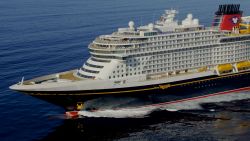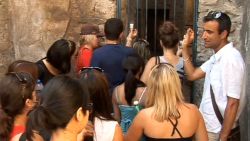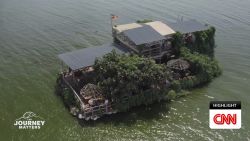A diver glides through the murky depths of the Persian Gulf, tracing the length of a submerged Boeing 747 airplane.
Fish and sea creatures accompany the deep sea explorer as he swims through the jet, into what was once the cockpit.
Welcome on board Bahrain’s sunken airplane, due to open in August as part of a vast underwater theme park spanning 100,000 square meters off a Bahraini island city.
Bahrain is hoping to attract divers from across the globe with the expansive site off Diyar Al Muharraq, a city which sits across seven artificial islands. Billed as the world’s largest underwater park, its centerpiece is the decommissioned, specially prepared aircraft.
Such a feature might be of dubious taste – but that hasn’t deterred the project managers.
Diver explores submerged airplane off the coast of Bahrain
The 70-meter-long plane is “the largest ever to be submerged,” according to Zayed bin Rashid Al Zayani, Bahrain’s minister of industry, commerce and tourism.
The subaquatic project is the product of a partnership between the Supreme Council for Environment, Bahrain Tourism and Exhibitions Authority (BTEA), and the private sector.
The diving site will also feature a replica Bahraini pearl merchant’s house, artificial coral reefs and art sculptures.
Residents and tourists will be able to book trips through licensed diving centers by August 2019.
“We are proud to launch this unique eco-friendly project,” said the minister.
Eco-friendly?
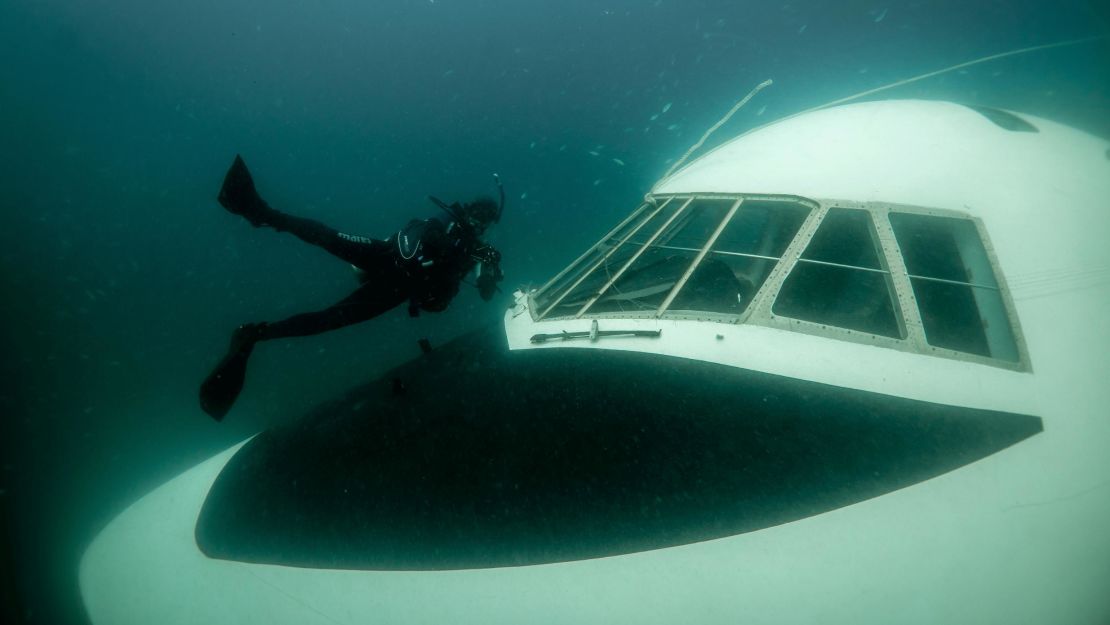
Officials say the new Bahrain attraction adheres to strict environmental standards, and will promote marine life growth and revive the local ecosystem.
But marine specialist Adriana Humanes, who has a PhD in Marine Ecology from James Cook University, Australia and is currently based at Newcastle University in the UK, says that artificial coral reefs are not always ecologically sound.
“As corals reefs in good health state become less abundant and divers become more skilled and experienced, artificial reefs have become popular alternatives used by governments and the tourism industry to attract visitors to certain areas of interest,” says Humanes.
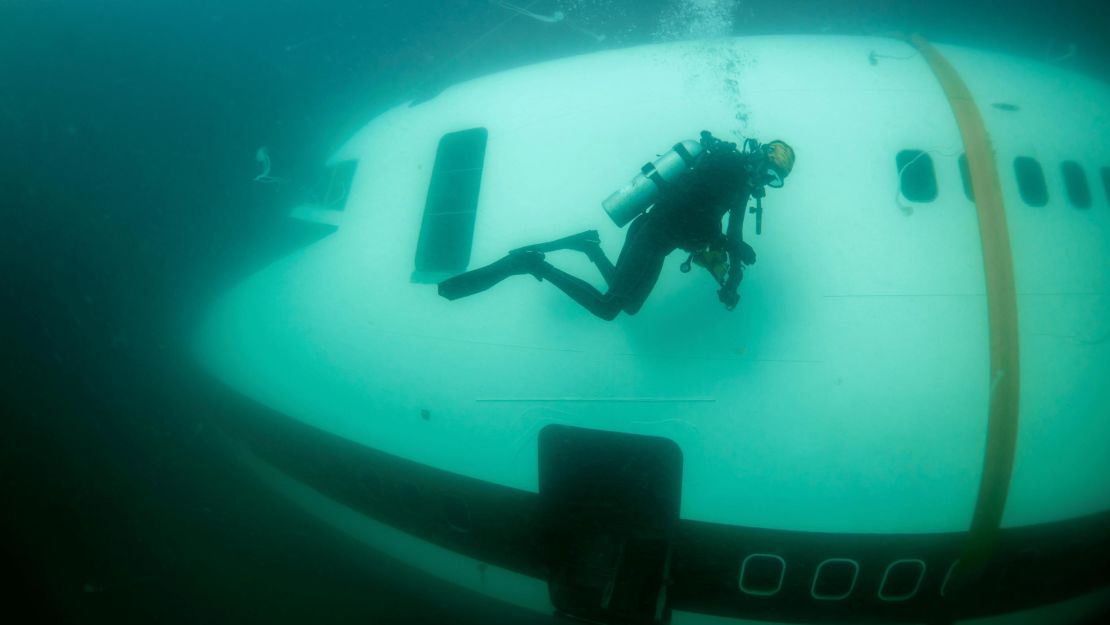
“Wreck diving is one of the oldest methods used to construct artificial reefs by providing a structure to marine sessile organisms and fishes.”
Humanes says that wreck diving provides “unique, diverse and intriguing diving experiences” – but clarifies that there may be downsides.
“Their materials – copper, copper alloys, aluminum, lead and steel, petroleum hydrocarbons and other potential pollutant – can be subject to corrosion, [passing] heavy metals into the seawater and affecting the surrounding marine organisms.
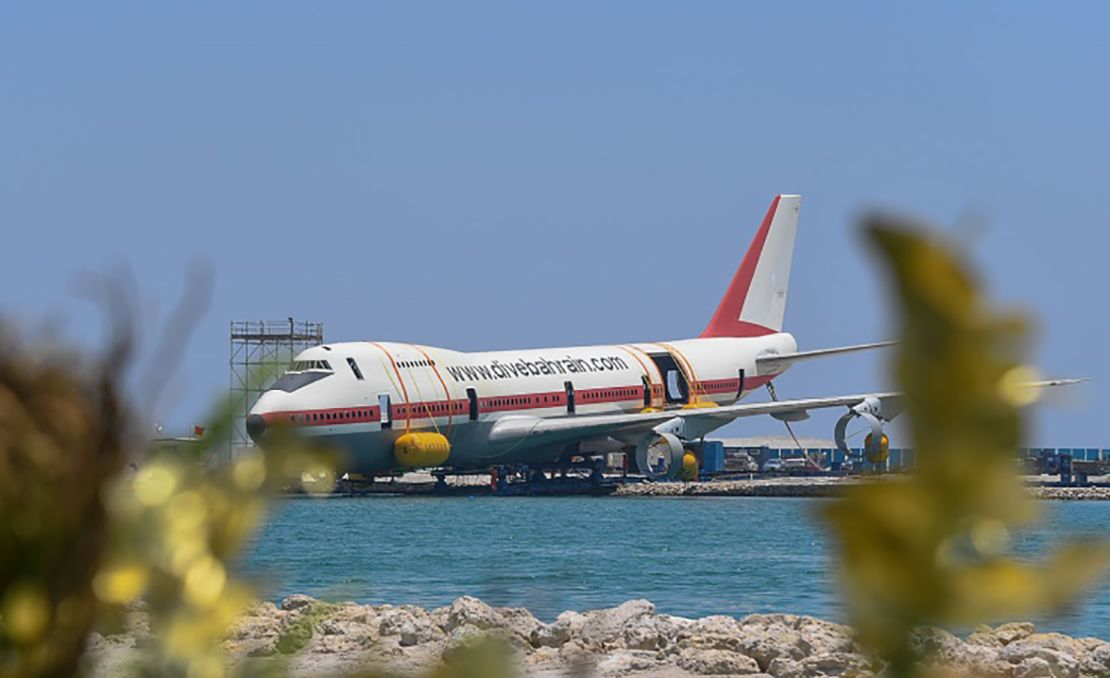
“Corrosion will also lead to the subsequent loss of structural integrity, potentially affecting marine life living in the area or becoming a safety threat to visitor divers.”
The Bahrain Tourism and Exhibition Agency said the aircraft was specially prepared before it was lowered into the water.
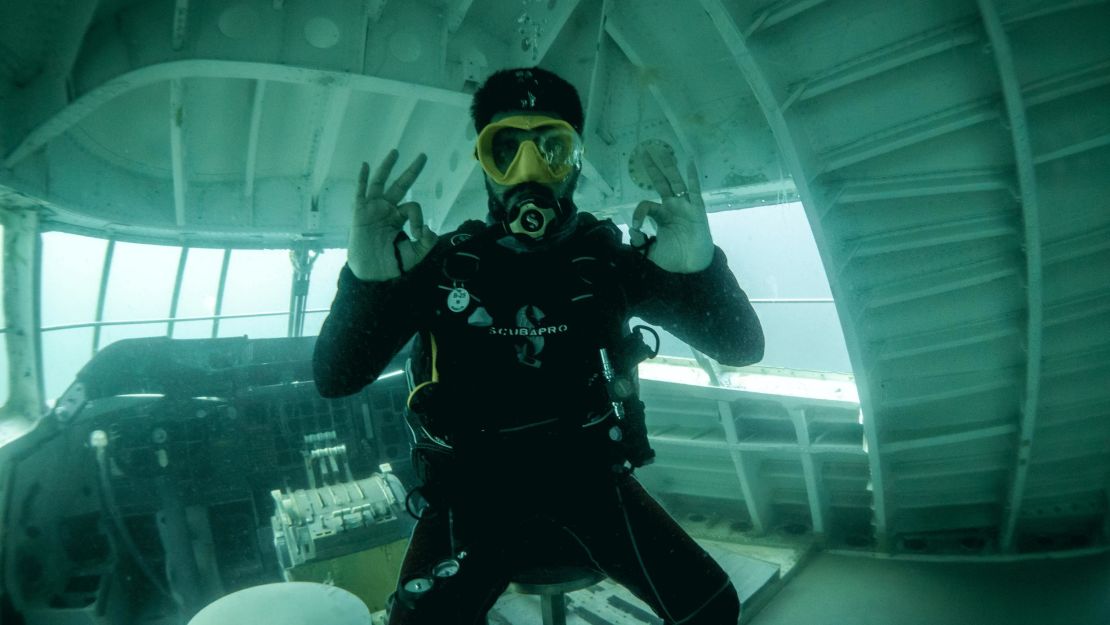
Wires were removed, adhesive, plastic and any possibly-toxic substances.
“All aircraft surfaces will be subjected to a high-pressure wash with bio-friendly detergents to ensure all post-production coatings, oil and grime are removed,” a spokesperson told CNN Travel, before the airplane was sunk.
“Furthermore, a vast amount of time has been spent removing contaminants from the aircraft. This has included removing all wiring, all hydraulic, pneumatic and fuel systems, and all adhesives, insulation, plastics, rubbers, chemicals or other potential toxic substances.”
Submerged jets across the world
Turkey is also climbing aboard the new trend in underwater tourism, sinking an Airbus jet off its northwestern coast to serve as a diving hotspot.
The modified jet was sunk off the Gallipoli Peninsula in an effort to attract thrill-seeking divers from around the world.
Videos posted on Instagram by Serdar Savasal, a diver involved in the project, show the jet being submerged into the sea.
This isn’t the first time such a project has been attempted in Turkey – an Airbus was also lowered into the waters off the Aegean coast a couple of years ago to become an artificial reef.
In the United States, a Boeing 727 jet was sunk off the coast of Miami in 1993. It was damaged during Hurricane Gordon in summer 1995.
Meanwhile at Mermet Springs in Illinois, a Boeing 727 that featured in the 1990s movie “U.S. Marshals” now lies below water and forms part of a popular diving site.
Over in Canada, divers can explore a decommissioned Boeing 737 in the Stuart Channel near Chemainus, British Columbia.
The amazing second lives of aircrafts
The upcoming Bahrain underwater park is also part of a wider trend for underwater tourist attractions. From the Maldives’ underwater hotel – where you can enjoy the marine view without getting wet – to America’s underwater museum, located off the coast of Florida, where divers can explore striking statues and sculptures.



